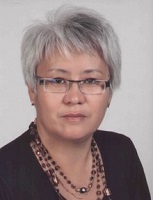Women’s world in contemporary Tuva
Keywords:
women’s world; family; children; career; self-actualization; gender imbalance; values; Tuvan womanAbstract
The article examines the ethnodemographic and ethnosocial position of ethnic Tuvan women in Tuva. Our analysis makes use of the concept of ‘women’s world’ which is actively used by researchers in the current state of increasing gender asymmetry. We treat ‘women’s world’ as a holistic worldview of women united by single values, attitudes and practices of living.
The contemporary shift in traditional male and female roles leads to blurring the boundaries between male and female functions and responsibilities. The crisis of family values has been brought about by the market economy and the overall social and economic situation in the country. In contemporary society women find themselves involved in public life, which limits her abilities in the sphere of family relations and marriage. To analyze the values, attitudes and practices which are important for Tuvan women, we have held an opinion poll of 250 women respondents in Tuva in spring 2015.
Tuvan society has always viewed family as the supreme value, and still does. When choosing a partner (which a woman is free to decide for herself), Tuvan women look for a caring, understanding, kind, educate, loving partner, with no pernicious addictions. Three is the ideal number of children in the family, although most families have only 1 or 2. Women of elder generations would typically have a bigger number of children. Younger generations are known for high divorce rate. One of the most important reasons for divorce is the urgent need for satisfying the family’s material needs.
A contemporary Tuvan woman combines in her social position both traditional and new functions, trying to uphold the values of family life, high level of welfare and the opportunity for self-actualization. Due to this combination, Tuvan society has a relatively high (if compared to other regions) level of reproductive goals, which means that a large part of respondents plans to have many children. However, the unstable material welfare of many families prevents the birth of more than two children.
References
Batsanova, S. V. (2007) Filosofsko-kul'turologicheskii analiz subkul'turnykh aspektov gendernoi kartiny mira : avtoreferat dissertatsii na soiskanie uchenoi stepeni kandidata filosofskikh nauk. Belgorod. 21 p. (In Russ.).
Brandt, G. A. (2000) Priroda zhenshchiny kak problema teorii feminizma : istoriko-filosofskii analiz : avtoreferat dissertatsii na soiskanie uchenoi stepeni doktora filosofskikh nauk. Ekaterinburg. 50 p. (In Russ.).
Brandt, G. A. (2006) Filosofskaia antropologiia feminizma. Priroda zhenshchiny. St-Petersburg, Aleteiia. 160 s. (In Russ.).
Goncharova, G. S. (2003) Tsennosti semeino-brachnykh otnoshenii v sovremennykh usloviiakh u narodov Tuvy i Khakasii. In: Etnosotsial'nye protsessy v Sibiri: Tematicheskii sbornik, ed. Iu. V. Popkov. Novosibirsk: Izdatel'stvo Novosibirskogo gosudarstvennogo universiteta. Vol. 5. 266 p. Pp. 58–69. (In Russ.).
Grigor'eva, D. K. (2004) Filosofsko-antropologicheskii aspekt obraza zhenshchiny v gendernykh issledovaniiakh : avtoreferat dissertatsii na soiskanie uchenoi stepeni doktora filosofskikh nauk. Moscow. 30 p. (In Russ.).
Dorzhu, Z. Yu. (1993) Sotsial'noe polozhenie zhenshchin v Respublike Tuva : Istoriia i sovremennost', 1921–1923 gg. : dissertatsiia na soiskanie uchenoi stepeni doktora istoricheskikh nauk. Moscow. 421 p. (In Russ.).
Zhenshchiny Sovetskoi Tuvy (1988) : sbornik statei. Kyzyl, TNIIIaLI. 109 p. (In Russ.).
Zabelina, V. A. (1977) Zhenshchiny osvobozhdennoi Tuvy v bor'be za novuiu zhizn' (1921–1944 gg.). In: Velikii Oktiabr' i problemy noveishei istorii, ed. Iu. L. Aranchyn. Kyzyl, TNIIIaLI. 147 p. Pp. 90–104. (In Russ.).
Zdravomyslova, O. M. (2008) Gendernye aspekty sovremennykh rossiiskikh transformatsii: problemy metodologii issledovaniia : avtoreferat dissertatsii na soiskanie uchenoi stepeni doktora filosofskikh nauk. Moscow. 53 s. (In Russ.).
Published
How to Cite
Issue
Section

Author(s) license holder(s) grant rights for their work to the journal (grantee of a license) under the simple non-exclusive open license in accordance with Art. 1286.1 «Open license for a research work, work of literature or fine arts», Civil Code of the Russian Federation.
New Research of Tuva publishes articles under the Creative Commons Attribution-NonCommercial license (CC BY-NC).
Since it is an open license, author(s) reserve the right to upload the article to their institutional repository, submit it to another journal (if it allows republications), or republish it on their own website (in full, or in part).
However, several conditions apply here:
a) The republished version must always contain the name(s) and affiliation(s) of the author(s), the original title and the hyperlink to the original version on the New Research of Tuva website;
b) It must be in open access, free of charge, and no category of readers must be in any way whatsoever advantaged over general readership.
c) should the contribution be submitted elsewhere by its author(s) without substantial modification (30% or more of original text unchanged), the body of the article should contain a disclaimer that the original version was published in New Research of Tuva (with a link to the respective page)
The CC-BY-NC is a non-revocable license which applies worldwide and lasts for the duration of the work’s copyright.






